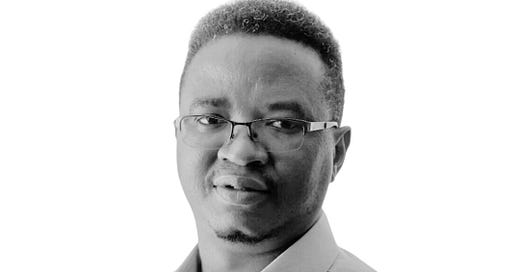Welcome to “Global Witness, Globally Reimagined.” You get a glimpse here of the kind of work that I do both at Church Mission Society and Missio Africanus where I help students of all levels (from unaccredited courses to PhD) explore the theological (and missiological) implications of the rise of World Christianity. In the newsletter, I focus on the subject of global witness in the twenty-first-century context. Every Thursday, I share a thought that has spoken to me in the week, one or two resources that I trust will be helpful to you, and three exciting quotes about mission to give you something to think about as you go through your day. I pray one of these will energise you.
1. Thought I Can’t Shake Off
It is Black History Month here in the UK. I do not necessarily like the idea of a “black-history-month,” but I am sure it serves a purpose. Every October, we get to be sensitised that we live in a racialised world where, for the most part, whiteness is the default setting. In my missions world, it seems whiteness is the only setting. So, I cherish every chance I get to reflect on black (and brown) aspects of mission.
A few days ago, I had an opportunity to attend an African American mission conference in Dallas, Texas, in the United States, hosted by Sowing Seeds of Joy Ministries, a black mission agency led by Ron and Star Nelson. This was the first African American mission conference I ever attended and it opened my eyes to some issues that I could not become aware of without going to Texas. The conference will be an outstanding event for me this year. It was a great time to connect with some of the brilliant African American missions people, both scholars and leaders of mission agencies. I enjoyed seminars on the “History of African American Missions in the World” and “The State of Mission in the Black Church.” It was good to be reminded that ten years before William Carey went to India, a formerly enslaved African American man, George Liele, left the US to become a missionary in Jamaica.
We also got to celebrate the many African Americans who have, over the past two centuries, been part of the movement of people sharing the good news of Christ around the world. I thought of the many African evangelists and catechists who brought the gospel to numerous communities around the continent, many of whom are forgotten because their names made it into the “history of mission” written by missionaries. Many African and Afro-Caribbean Christians currently scattered around the world are also doing a great deal of work, sharing the good news and discipling the nations.
As I have thought of this, I have also became increasingly aware of the fact that a great deal of African missionary work in the world is shaped by Western language and thought. Mission is, for them, what the Westerners did in Africa many decades ago. Whether it is my African American or Afro-Caribbean friends or, indeed, my African colleagues, their mission talk is still largely about dominating and civilising, even though, to a great extent, this is practically impossible. I wonder whether those Westerners involved in this work could model a more twenty-first century way of doing mission. And, of course, I wonder whether the rest of the world can, without the help of the Western mission agencies and scholars, find ways to keep sharing the gospel of Jesus in non-colonial ways.
2. Resources I am Enjoying
Podcast: RAW Mission, “Seeds from the East: The Chinese Impact”
This episode of the RAW Mission podcast is the third in the series of conversations with diaspora immigrant (second or third generations) church-planters in the West. This particular discourse welcomes Dr M, a Canadian of Chinese heritage, to reflect on his experience of witnessing as a Chinese among Muslims. He pinpoints some of the challenges of working in what he describes as contexts of “shame and honour.” He further emphasises the importance of being aware that Muslims come from very different political, cultural and theological contexts and are not all of the same cultural group or monolithic. Hence, we must not make the mistake of treating them alike, and, thus, impede the fruitfulness of our witness among such people groups.
3. Quotes I am Pondering
Missio Dei is at the heart of the scriptural narratives … As such, mission should also be a valid component of biblical interpretation. — Boubakar Sanou, "Missio Dei as Hermeneutical Key for Scriptural Interpretation," Andrews University Seminary Studies 56, no. 2 (2018): 316.
We however need to listen to one another in order to effectively proclaim the Good News. In the process of mutual listening, there is mutual learning and our common experience of God is deepened. — Philomena Njeri Mwaura, "Reconstructing Mission: The Church in Africa in the Service of Justice, Peace and Reconciliation," Rethinking Mission (2008): 12.
… our idea of salvation ought to go beyond repentance from sin but perhaps much broader, as a kind of salvation required to bring about wholeness which should constantly remind us that there are people who are in need of salvation always. — Kefas Kure Umaru, "Salvation as Healing? An Analysis of Jesse Mugambi and Mercy Oduyoye’s Soteriologies in the Context of African Prosperity Gospels" (Master of Theology, Stellenbosch University, 2017), 145.
I pray that you will be faithful to the work God has for you this week.



